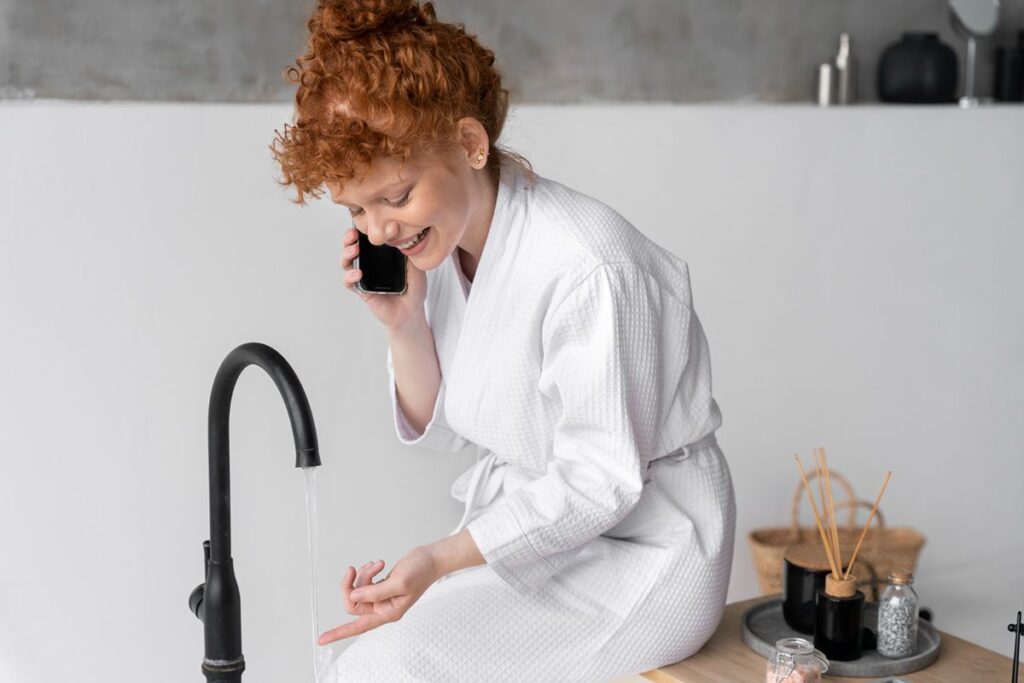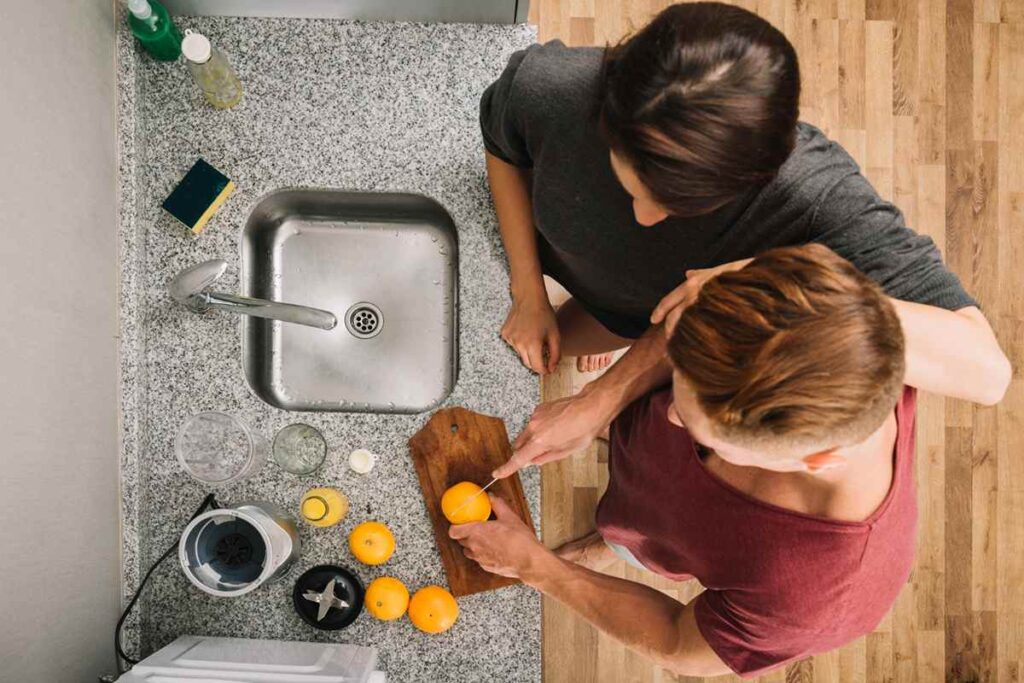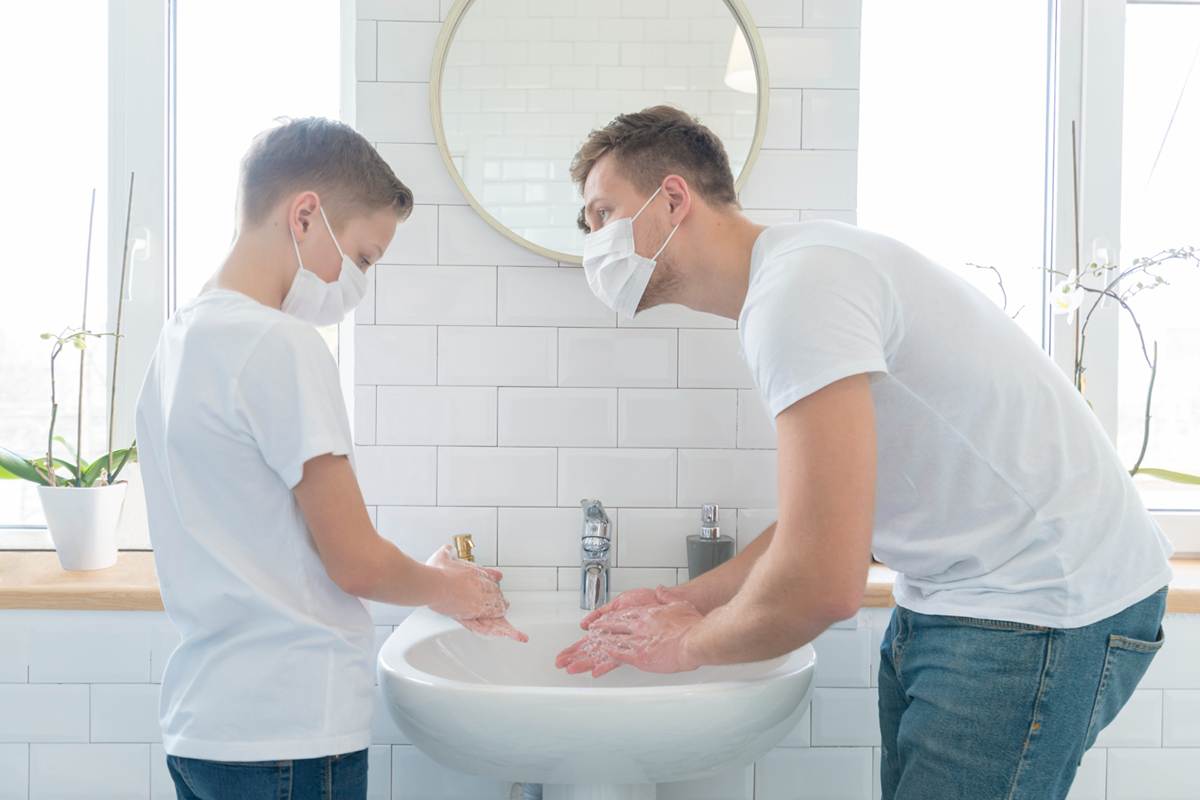Ever noticed thick, black slime oozing from your sink drain? It looks gross, smells terrible, and often leaves people wondering: is black sludge in sink dangerous? The short answer is yes—it can be harmful to your health and your home. This nasty gunk is more than just dirt; it may contain mold, bacteria, and even biofilm that can spread illness or damage your plumbing. In this article, we’ll walk you through what black sludge really is, why it forms, how to get rid of it safely, and—most importantly—how to stop it from coming back again.
What Is Black Sludge in a Sink Drain?
Black sludge in a sink drain is a sticky, slimy mess made from things we use every day. It forms when soap scum, hair, oils, food bits, bacteria, and even mold mix together and stick to the inside of your pipes. Over time, this mix turns into a thick, black goo.
You can find this sludge in different places:
- Kitchen sinks, where food grease and dish soap go down the drain.
- Bathroom sinks, where toothpaste, hair, and beauty products collect.
- Utility sinks, where dirt and cleaning products are washed away.
What most people don’t know is that this black sludge is not just gross—it can also carry harmful bacteria and release bad odors, and in some cases, damage your plumbing if left untreated. According to plumbing experts, this buildup creates the perfect place for germs to grow, especially in humid areas.
Expert Tip: Plumbers often find this sludge in homes that use too much greasy soap or don’t clean their drains regularly. That’s why learning how to deal with it is so important.
Is Black Sludge in Sink Dangerous?
Yes, black sludge in sink is dangerous—not just gross. It can harm your health, make your home unsafe, and even damage your plumbing if ignored.
Here’s why you should be careful:
Health Risks from Black Sludge
Mold Spores in the Air: Black sludge often contains mold. If you breathe in mold spores, it can make your lungs feel tight or irritated. This is especially bad for people with asthma or allergies.
Bacteria on the Skin: The slime can carry bacteria that may cause skin infections if you accidentally touch it while cleaning the drain.
Risk to Kids and Pets: Children and pets are more sensitive. Their immune systems aren’t as strong, so they’re more likely to get sick from mold or bacteria around dirty sinks.
Slippery Floors: When drains overflow due to sludge buildup, water can spill onto the floor. This can cause someone to slip and get hurt, especially in kitchens or bathrooms.
According to the CDC, mold exposure may lead to coughing, wheezing, or even serious lung infections in some people. Learn more on the CDC website.
Black Sludge in Kitchen Sink Pipes

Black sludge in kitchen sink pipes is a common problem, and it’s not just from dirty dishes. Several things contribute to the buildup of sludge in your kitchen sink:
Why Kitchen Sinks Get It
- Food Scraps: Even small bits of food can get stuck in your sink pipes. Over time, they mix with other materials and create a perfect environment for sludge.
- Grease and Fat: Cooking oils, butter, and meat grease don’t break down easily. They can coat the inside of your pipes, attracting other debris and making the sludge stickier.
- Detergents: Dish soap and cleaning products leave behind residues that can combine with grease and food particles, making the sludge more likely to form.
Why It’s Extra Dangerous
- Bacteria from Old Food: When food particles sit in the drain too long, they decompose and create bacteria. This bacteria can spread, causing potential health risks, especially if you eat off surfaces near the sink.
- Bad Smells: The decomposing food and grease give off foul odors that can make your kitchen smell bad and attract pests like fruit flies or ants.
- Risk of Clogs and Pipe Damage: Ignoring black sludge buildup can lead to serious clogs in your kitchen sink. Over time, the sludge can harden, causing pipes to crack, leak, or even burst. This can be expensive and messy to fix.
How to Remove Black Sludge from Bathroom Sink
Removing black sludge from a bathroom sink is easier than you might think. Follow this simple, step-by-step guide to clear out the gunk and get your sink flowing freely again:
Step-by-Step Guide to Removing Black Sludge
- Wear Gloves and a Mask:
First, protect yourself. Wear rubber gloves to avoid touching the sludge and a mask to prevent inhaling any harmful mold spores or bacteria. - Use Boiling Water:
Boil a pot of water and carefully pour it down the drain. This helps break up the grease, soap scum, and food particles causing the sludge to form. - Pour Baking Soda + Vinegar:
After the hot water, pour ½ cup of baking soda down the drain, followed by 1 cup of vinegar. The fizzing action helps loosen the sludge and clean the pipes. - Wait 15 Minutes, Then Flush Again:
Let the baking soda and vinegar sit for about 15 minutes. The bubbling will help clear away the debris. After 15 minutes, flush the drain with more hot water to wash everything down. - For Tough Clogs:
If the sludge still isn’t gone, try using a drain snake to physically remove the buildup. If that doesn’t work, it’s best to call a plumber to avoid damaging the pipes further.
How to Prevent Black Gunk in Sink Drain

Preventing black gunk in your sink drain is easier than you think! By following a few simple daily and weekly habits, you can keep your drains clean and avoid the nasty buildup of black sludge.
Easy Daily/Weekly Habits
- Run Hot Water After Using the Sink:
After washing dishes or brushing your teeth, run hot water for a few seconds. This helps clear any soap, grease, or food particles that may have been left behind in the drain. - Avoid Pouring Grease/Oil Down the Drain:
Never pour cooking grease, oil, or fat down the sink. These can solidify inside the pipes and mix with other debris to form sludge. Instead, collect grease in a container and throw it away. - Use a Sink Strainer:
A sink strainer catches food scraps, hair, and other debris before they go down the drain. It’s a simple and effective way to prevent clogged pipes and sludge buildup. - Monthly Cleaning Routine (Vinegar + Baking Soda):
Clean your sink and drain once a month using a combination of vinegar and baking soda. Pour half a cup of baking soda into the drain, followed by a cup of vinegar. Let it sit for 15 minutes and flush with hot water. This routine helps break down any minor buildup and keeps your pipes clean. - Enzyme-Based Drain Cleaners (Safe and Eco-Friendly):
Consider using enzyme-based drain cleaners. These are natural, eco-friendly cleaners that break down grease, food particles, and other organic materials without the use of harsh chemicals. They’re safe for both your plumbing and the environment.
What Your Plumber Might Not Tell You
While plumbers often provide helpful fixes, there are some key details they might overlook or not always mention. Here’s what you need to know to understand black sludge in your sink better:
Biofilm and Its Role in Black Sludge
Biofilm is a slimy layer of bacteria, oils, and other debris that forms on the inside of your pipes. It’s like a shield that protects bacteria, allowing it to thrive and multiply. Over time, biofilm traps other substances like soap scum, hair, and grease, which contribute to the black sludge you see in your sink. This biofilm is tough to remove, which is why regular cleaning and proper drainage maintenance are essential.
How Old Pipes or Poorly Vented Drains Increase the Risk
Old pipes or poorly vented drains can make the situation worse. Older pipes are more likely to have rough surfaces where biofilm and sludge can accumulate. If your pipes are made of materials like cast iron or have never been replaced, they might be prone to corrosion, making it easier for sludge to form. Poorly vented drains cause pressure issues, which can slow the flow of water and allow sludge to settle.
What to Do if Smells Persist
If you notice persistent odors from your drain even after cleaning it, the problem could be deeper than surface-level sludge. A vent stack or air admittance valve could be the culprit. These components help maintain air pressure and prevent sewer gases from escaping into your home. If they’re blocked or malfunctioning, it can lead to bad smells and a stagnant drain. Consider checking your vent stack or air admittance valve to make sure everything is working properly.
Safe vs Unsafe Sink Cleaners
Choosing the right cleaner is important for your health and the environment. Here’s a quick comparison of common sink cleaners to help you make the best choice for keeping your drains clean and safe for your family.
| Cleaner Type | Safe for Kids/Pets? | Eco-Friendly | Effective? |
| Boiling Water | ✅ Yes | ✅ Yes | ⚠️ Medium |
| Baking Soda + Vinegar | ✅ Yes | ✅ Yes | ✅ High |
| Bleach | ❌ No | ❌ No | ✅ High |
| Enzyme Cleaner | ✅ Yes | ✅ Yes | ✅ High |
Breakdown:
- Boiling Water:
Safe for kids and pets, and environmentally friendly. However, it’s only moderately effective at clearing out the sludge and buildup. - Baking Soda + Vinegar:
A highly effective and eco-friendly solution that’s also safe for everyone in your household. This combo works well for regular cleaning. - Bleach:
While highly effective, bleach is not safe for kids or pets and is not eco-friendly. It’s a harsh chemical that can damage your pipes and harm the environment, so it’s best avoided. - Enzyme Cleaner:
A natural, eco-friendly cleaner that’s also safe for children and pets. It’s highly effective at breaking down organic materials and is a great choice for regular maintenance.
Expert Tips to Keep Your Sink Healthy

Maintaining a healthy sink drain is key to preventing black sludge buildup and avoiding plumbing issues. Here are some expert tips to keep your sink in top condition:
1. Use Natural Cleaners Regularly
Make it a habit to use natural cleaners like baking soda and vinegar. These non-toxic, eco-friendly options are safe for your family and pets, and they help break down debris and prevent sludge buildup. Regular use of natural cleaners keeps your pipes fresh and reduces the risk of harmful bacteria.
2. Flush Drains with Hot Water Weekly
Running hot water down the drain once a week helps clear away grease, soap scum, and food particles. It also helps maintain a free-flowing drain and prevents the buildup of black sludge. Simply run hot tap water for 30 seconds after each use, especially after washing dishes or cleaning.
3. Install Drain Traps or Strainers
A drain trap or strainer is a simple but effective tool that catches food scraps, hair, and other debris before they enter your pipes. It’s an easy and inexpensive way to prevent clogs and reduce the chance of black sludge forming in your drain.
4. Call a Plumber If the Problem Returns Often
If you notice black sludge coming back frequently, it could be a sign of a deeper issue, such as a clog in the pipes or improper venting. Calling a plumber can help address the root cause and prevent further damage to your plumbing system. Regular professional maintenance can help avoid major plumbing issues in the future.
FAQS
Can sewage sludge make you sick?
Yes, sewage sludge can make you sick. It contains harmful bacteria and mold that can lead to infections or allergies if inhaled or touched.
Can dirty sink water make you sick?
Dirty sink water can make you sick due to the presence of bacteria, viruses, and mold. These microorganisms can cause gastrointestinal problems or skin infections if exposed.
Can blocked drains make you ill?
Yes, blocked drains can cause illness by trapping food scraps, bacteria, and mold. This creates a breeding ground for harmful microorganisms that can affect your health.
Can sediment in water make you sick?
Sediment in water may carry contaminants such as bacteria and viruses. Drinking or using contaminated water can cause stomach infections or other health issues.
Can black sludge make you sick?
Yes, black sludge in sinks can cause health problems. It contains mold spores, bacteria, and other pathogens that can lead to respiratory issues, skin infections, and more.
Does bleach remove black sludge?
Bleach can help disinfect and remove surface-level sludge, but it doesn’t tackle deep buildup. For effective cleaning, try using baking soda and vinegar or call a plumber for stubborn clogs.
Why does my sink smell bad?
A bad odor from your sink is often caused by bacteria, mold, and trapped food particles in the drain. Regular cleaning can help eliminate these smells.
Conclusion
So, is black sludge in the sink dangerous? Yes, it can be. The germs, mold, and bacteria in black sludge pose serious health risks to you, your family, and even your pets. It’s crucial to clean your sink properly and prevent this nasty buildup from returning.
By following the tips in this article—like using natural cleaners, flushing your drains, and calling a plumber when necessary—you can keep your home safe and healthy. Take action now to ensure your sink remains clean and your plumbing stays in top condition.










